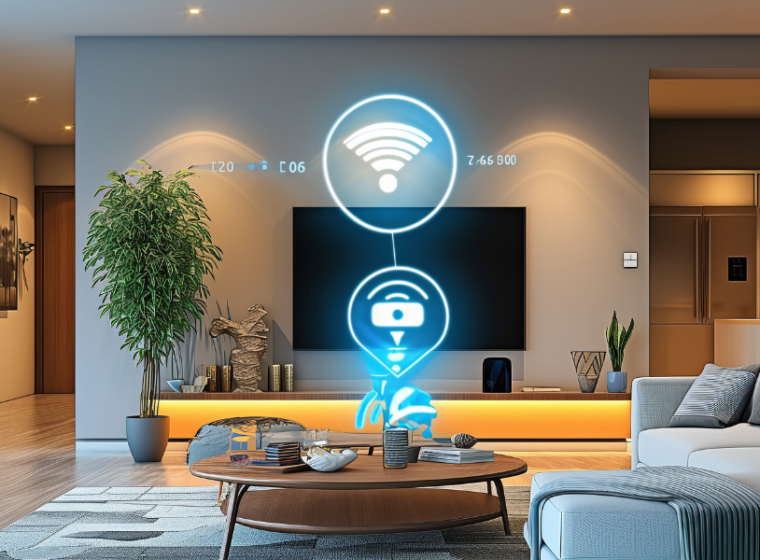Once viewed as a rarity, remote work has become an integral part of modern professional life. Employees are increasingly seeking flexible work arrangements that allow them to conduct their day-to-day duties from the flexibility of any location.
Driven by workforce demand, operational efficiency, and the pandemic, this shift has led to a surge in people working from non-traditional spaces, including hotels. According to McKinsey’s American Opportunity Survey, 58% of American workers have the option to work remotely at least one day a week, while over a third (35%) can work from home five days a week.
The rise of remote work has created a unique opportunity for hotels to cater to this growing demographic of digital nomads and remote professionals. The key to attracting and retaining these guests lies in providing an environment that supports their work needs, with high-speed internet being the common denominator.
Remote Workers’ Demand for Connectivity in Hotels
The best hotels for remote work understand that fast and reliable WiFi is not just an amenity but a necessity for their guests.
This new emphasis on connectivity has led to a new standard in hospitality, where the quality of internet service can make or break a hotel’s reputation among remote workers. To truly excel in supporting remote work, hotels must go beyond simply offering WiFi in guest rooms. Instead, they need to provide a comprehensive suite of services and amenities that cater to the unique needs of digital professionals.

How Hotels Are Creating Remote Work Environments
To attract and retain remote workers, hotels are implementing various creative strategies to cater to the unique needs of this growing demographic.
Loyalty Rewards Programs
Hotels are revamping their loyalty programs to appeal specifically to remote workers. These programs often include perks such as complimentary upgrades to rooms with better workspaces, priority access to high-speed internet, and points that can be redeemed for extended stays or workspace rentals. Some hotels are even partnering with local businesses to offer discounts on co-working spaces or nearby cafes, enhancing the overall remote work experience.
WiFi Perks
Recognizing that reliable internet is crucial for remote workers, many hotels are offering enhanced WiFi perks. These may include complimentary high-speed internet access for loyalty program members, dedicated bandwidth for video conferencing, or the option to purchase premium internet packages for intensive work sessions. Some hotels are even providing mobile hotspots for guests to use around the property or during local excursions.
High-Speed Internet Access (HSIA)
HSIA has become a non-negotiable amenity for hotels catering to remote workers. Hotels are investing in robust internet infrastructure to ensure seamless connectivity throughout their properties. This includes not only guest rooms but also common areas, outdoor spaces, and dedicated workspaces. Many remote working hotels are partnering with specialized HSIA providers to offer turn-key solutions that can handle the demands of multiple users engaged in bandwidth-intensive tasks.
Dedicated Workspaces
Hotels are reimagining their spaces to create dedicated work areas that cater to different work styles. These range from private, in-room workstations with ergonomic chairs and ample desk space to shared co-working lounges equipped with printers, scanners, and other office essentials. Some remote working hotels are even converting underutilized spaces into fully-equipped business centers or transforming guest rooms into day-use offices.
Flexible Booking Options
To accommodate the varied schedules of remote workers, hotels are offering more flexible booking options. This includes day-use rates for those who need a quiet space to work but don’t require an overnight stay, extended stay packages for digital nomads, and the ability to book rooms in blocks of hours rather than full days. These options provide remote workers with the flexibility to create a work environment that suits their specific needs and schedules.
Wellness Amenities
Recognizing the importance of work-life balance, hotels are incorporating wellness amenities to attract remote workers. These may include on-site fitness centers, yoga classes, meditation rooms, or access to nearby wellness facilities. Some hotels offer healthy meal options, standing desks, or even in-room exercise equipment to help guests maintain their physical and mental well-being while working.
To truly excel in supporting remote work, hotels must ensure that their internet infrastructure can handle the demands of video conferencing, large file transfers, and other bandwidth-intensive tasks. This means investing in robust, scalable WiFi solutions that accommodate peak usage without compromising speed or reliability.
By providing a seamless digital experience, hotels can position themselves as ideal destinations for remote workers, tapping into this growing market and establishing themselves as authority figures in the evolving hospitality landscape.
What are the Best Hotels for Remote Workers?
Some hotels have embraced the remote workforce with strategic marketing campaigns and guest programs that cater to professionals’ productivity and connectivity needs. The best hotels for remote work have earned a reputation among workers, and their approaches to remote work offer key insights to all hoteliers aiming to tap into this growing market.
- Crowne Plaza: This chain has implemented its WorkLife Room concept, featuring angled beds to create larger work areas, multiple USB ports, and adjustable lighting to enhance productivity.
- Moxy Hotels: Marriott’s millennial-focused brand provides tech-savvy amenities and flexible public spaces that cater to the needs of remote workers. Their lobbies often feature communal tables and plenty of power outlets for a productive workday.
- Hyatt: Introduced their Work from Hyatt package, offering extended stay options with dedicated workspaces, complimentary high-speed Wi-Fi, and daily food and beverage credits at many of their properties worldwide.
- Hilton: Developed WorkSpaces by Hilton providing day-use rooms with ergonomic workstations and fast Wi-Fi for remote workers seeking a productive environment.
- Accor: Launched a Hotel Office concept across their brands (including Novotel and Mercure), allowing guests to book rooms as private offices for the day.
- Four Seasons: While not a dedicated program, many Four Seasons properties have enhanced their offerings for remote workers, including upgraded in-room technology and flexible workspace options in public areas.
- Hyatt’s Andaz: These boutique-style hotels offer a blend of local culture and modern amenities. Their lobbies and public spaces are designed to be multi-functional, accommodating both business and leisure (or “bleisure travel”) with reliable Wi-Fi and comfortable seating.
It’s one thing to recognize the growing trend of remote work. But it’s another to adapt and cater to this valuable market segment. By offering reliable connectivity, comfortable workspaces, and additional perks, remote working hotels can better attract digital nomads and remote professionals seeking the most accommodating space.

Attract Remote Workers to Your Hotel with HSIA Connectivity
As remote working becomes increasingly prevalent, reliable WiFi is essential for meeting the connectivity needs of modern business travelers. High-speed internet access is now a key factor in successfully attracting remote workers, and hotels that invest in strong and reliable WiFi infrastructure are better positioned to meet the demands of today’s remote working business travelers.
Working with a managed WiFi provider has many benefits for hotels aiming to support remote work. Blueprint RF partners with hospitality businesses to help provide guests with secure and reliable internet connectivity, complete with valuable analytics data and performance dashboards. To learn more, contact Blueprint RF.











